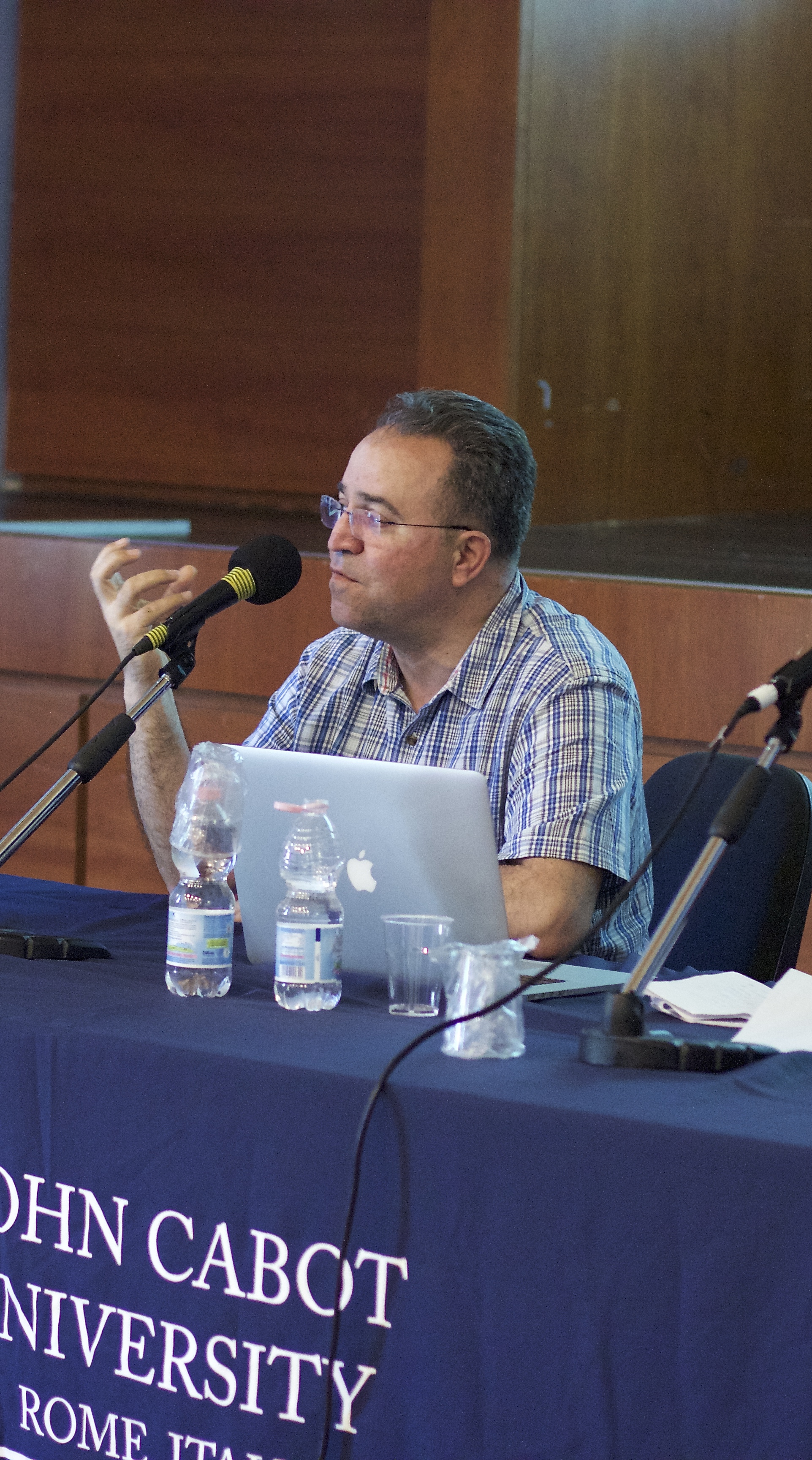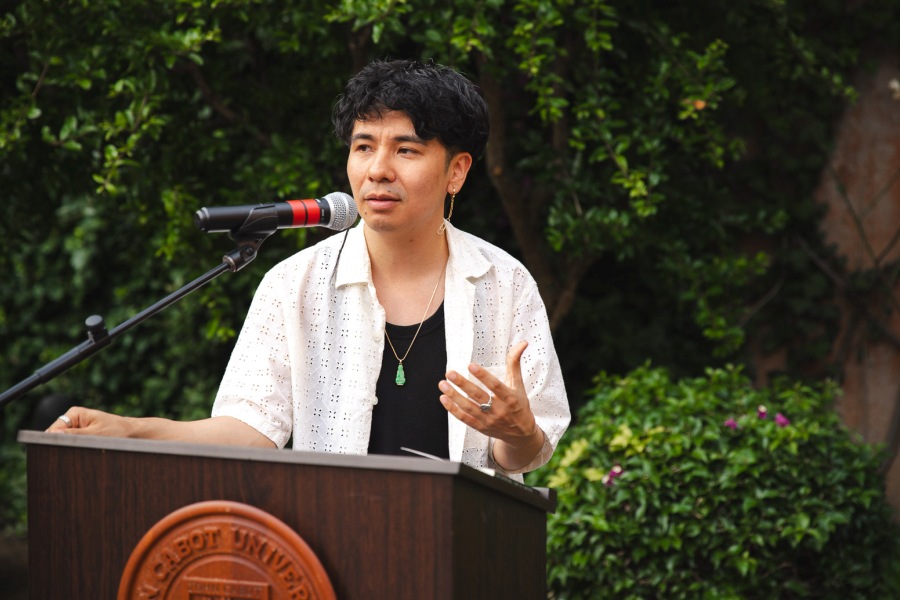The Arab Archive: Mediated Memories and Digital Flows
John Cabot University hosted the workshop “The Arab Archive: Mediated Memories and Digital Flows” on May 24th and 25th. Guest speakers from different Arab regions as well as from other parts of the world came together to discuss the political economy of the Arab Image, and reflect upon the materiality, ethics, and aesthetics of filming, distributing and archiving post-2011.
The workshop was organized by Professor Donatella Della Ratta from JCU’s Department of Communications, Professor Sune Haugbolle from Roskilde University (Denmark) and Professor Kay Dickinson from Concordia University (Canada).
Says Professor Della Ratta, “This international workshop has brought together an inspiring panel of artists, activists, and scholars from all across the Arab world to reflect on the sheer amount of visual media produced during the 2011 uprisings. The political economy of the post-2011 ‘Arab image’ is a key issue to discuss at a time when intellectual property rights, ownership, authorship, and proprietary distribution platforms seem to have replaced the digital commons produced in the excitement for the revolutionary moment. ‘The Arab Archive’ has explored timely questions from a wide range of perspectives, including the aesthetics of this collectively generated footage and the material implications of storing the digital memory of entire populations on proprietary networks, commodifying them for the sake of art venues, film festivals, and international markets.”
Speakers
Basma al Sharif – a Palestinian filmmaker born in Kuwait, raised between France, the US and the Gaza Strip. In her talk “Trauma and Apathy,” al Sharif discussed her attempts to understand whether the representation of violence in the occupied territories has the potential to produce a positive change. “As I see it, these images have done very little to thwart Israel’s aggression and perpetual destruction in the seven decades old occupation of Palestine. I have also been trying to understand whether the inundation of violent imagery that we come across daily, not only does little to change a violent situation but also produces apathy,” says al Sharif.
Miriyam Aouragh – teaches critical and international media at the University of Westminster. Her research focuses on the dialectical relation between radical political change and technology. In her presentation “Married to the Revolution,” Aouragh built a debate on gender studies, focusing on Moroccan feminist scholars. How do activists maneuver in relatively conservative society? She explores the main concerns of digital privacy issues, which are often part of the general risks.
Mohammad Ali Atassi – is the founder of Bidayyat, a Syrian documentary production company. His presentation “New Syrian Cinema: Between Documentation and Artistic Practices” draws on Susan Sontag’s Regarding the Torture of Others (2003), in order to explore the conditions and circumstances of the production of images of atrocity in the Syrian revolution/war and their use and circulation in the spectacle of killing in international and social media.
Enrico de Angelis – from Free Press Unlimited & Syria Untold. He analyzed how Syrian photographers, media activists, and intellectuals engage with a scattered and public archive of horror images on social media and international media. Diverse patterns of interactions and attitudes towards this controversial archive emerge, forcing us to rethink the simple opposition between a complete rejection of those images and their uncritical production and consumption.
Laure Guirguis – researcher, IREMAM (CNRS-AMU). In “Towards an Archive of the Arab New Left: Tasks and Challenges of Digitization and Open Access,” she presented the challenges of creating an online archive of the Arab New Left. “This interactive platform would facilitate access to these documents, thereby prompting the development of interactive teaching methods. This project, however, also leads me to address an array of sensitive issues on the ambivalence of digitization and open access, and on the power relations in which archiving processes are embedded.”
Philip Rizk – a filmmaker from the Egyptian collective Mosireen. Together with Jasmina Metwaly, he directed the feature film Out on the Street, which premiered at the Berlinale 2015 and was part of the German Pavilion at the Venice Biennale 2015. In “Working with and against the archive – the factor of time,” he discussed the work of the Mosireen collective, which has just inaugurated an open source archive with footage shot during the period of the Egyptian revolution that deposed Mubarak in 2011.
Abdel Razzaq Takriti – Associate Professor and Arab-American Educational Foundation Chair in Modern Arab History at the University of Houston. In “Against the Archive: Digital Humanities of Anti-Colonial Revolution” he drew from his experience as the co-author and co-curator of the Palestinian Revolution website learnpalestine.politics.ox.ac.uk, reflecting on digital engagement with a historic revolutionary phase of an ongoing anti-colonial struggle.
Dork Zabunyan – Professor of Film studies at Paris 8 University. In “Missing images and hypervisibility” he recalled that in 1991, during the Gulf War, the French critic Serge Daney declared that we had entered the era of “missing images,” as evidenced by the absence of images of Baghdad bombarded on television screens.







